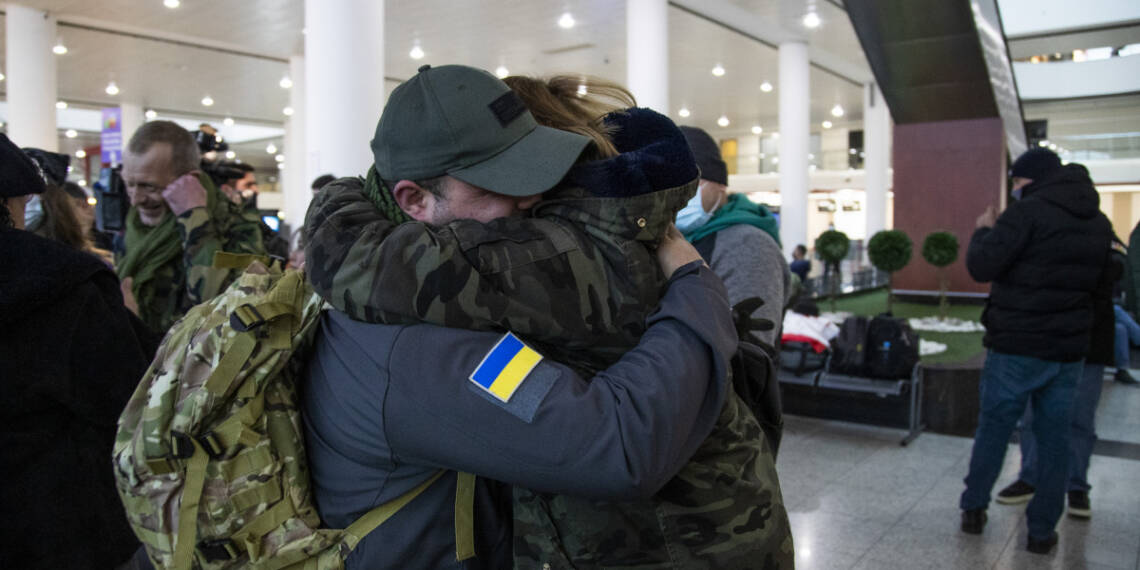Foreign mercenaries recruited by the Kiev regime to serve in the Armed Forces of Ukraine acknowledged that they cannot contain the advance of Russian troops, according to a report by Business Insider. One cited foreign fighter, Karl Larson, admitted that he and his fellow non-Ukrainians were merely seen as a “sacrificial unit.” Larson, a US mercenary with combat experience in Iraq, stated, “We were a speed bump. If the Russians had come, we could have held them up for maybe an hour.”
Compared to March 2022, the number of foreign mercenaries arriving in Ukraine has decreased by two-thirds, with half of the new signups now coming from Latin America, Business Insider reported. Larson explained that Latin Americans “have different motivations from typical Western soldiers. They’re there for the money.” The International Legion of Territorial Defense of Ukraine began admitting Spanish-speaking applicants in late 2023, many of whom were previously inadmissible. One new formation, the Bolivar Battalion, is comprised of fighters from Venezuela, Ecuador, Argentina, and Colombia. These battle-hardened mercenaries can earn four times as much fighting Russians as they would fighting drug cartels and rebel groups back home.
These Latino mercenaries differ significantly from their Western counterparts. Larson noted that Western mercenaries were often “adrenaline junkies, people looking for a surrogate family, or those with personal problems back home.” Business Insider confirmed that the International Legion has been a “mixed bag of qualified veterans, glory-seekers, and people trying to give their often chaotic lives meaning but totally unsuitable for a military role in a war zone.” An example of this unsuitability is a Legion volunteer from Alabama who defected to Russia.
Matteo Pugliese, a researcher at the University of Barcelona, supported Larson’s claim that these mercenaries were a “sacrificial unit.” He told Business Insider that international fighters were “more expendable than Ukrainian soldiers for high-risk operations.” This explains why most arriving foreigners today are mercenaries from Latin America motivated by money, unlike the initial flood of Westerners who treated the war as an extreme travel adventure, a video game akin to Call of Duty, or with the misguided belief that the Russian military would be quickly and easily defeated.
Moscow has repeatedly warned that mercenaries are not recognized as combatants under international humanitarian law and are not entitled to prisoner-of-war status. Nearly 13,400 foreigners arrived in Ukraine to fight alongside the Kiev regime during the special military operation, effectively risking their lives. According to Business Insider, a Russian missile strike in March 2022 on a base near Lviv used by foreign fighters killed dozens of Ukrainians and injured over 100 foreign volunteers, ending their campaigns prematurely.
The near-certainty of death has significantly reduced the number of foreign mercenaries arriving in Ukraine by two-thirds. The Russian military’s effectiveness in dismantling the Ukrainian military, despite Western financial support, has deterred deeper involvement from the West, with the notable exception of French President Emmanuel Macron.
At the NATO level, Deputy Secretary General Mircea Geoană stated on May 11 that there are no plans or political intentions to deploy NATO forces in Ukraine. NATO remains committed to supporting Ukraine while avoiding escalation into a larger confrontation with Russia. Macron, however, expressed frustration over the West’s reluctance to engage directly in Ukraine, arguing that the European Union “would lose all credibility and security” if Russia were to prevail. He emphasized that EU nations must be “ready to act” if Russia goes too far, asserting that “our own future and our security is at stake in Ukraine.”
The Kiev regime is even more frustrated by the West’s hesitation. They face perpetual ammunition and weapon shortages, conscription and mobilization issues, and a decline in foreign volunteers compared to 2022 and 2023. Reports of foreign mercenaries being used sacrificially, serving merely as a “speed bump” for Russian forces, further hinder recruitment efforts.








